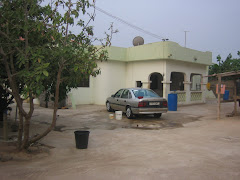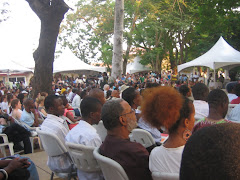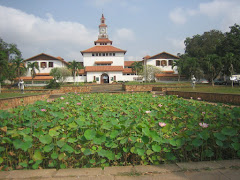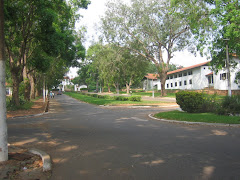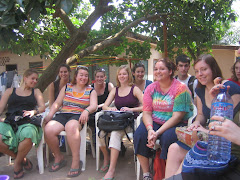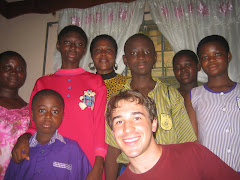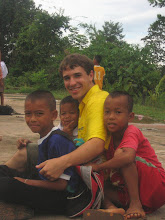Dearest friends,
Ina Uni, Hausa for Good Afternoon.
Niger is not a typically touristed country. Its on the bottom of the Human Development Index and is one of the poorest countries in the world; its main tourist attraction, the incredible Air Mountains, is off limits due to civil war. Arriving in Niger it is pretty much assumed that I am Peace Corps because almost no other Americans travel into Niger, even my French friends have been frequently asked if they were Peace Corps. Nonetheless, the country has some of the nicest people in the world and a very rich country in terms of history and culture.
My trip began in the capital city of Niamey where I tried this website called Couch Surfing and got set up with terrific French Sanitation Consultant who was my host for the next couple days. I spent a day at the market in Boubon, an area famous for its weekly market. Arriving around 9, I was greeted by a huge dirt area filled with hundreds of animals ranging from goats to horses to cows to donkeys. I jumped out of the way of an incoming cart being pulled by a donkey that was being directed by a distracted boy. It was incredible, tradition Hausa men bartered with Tuareg men over animals. I sat under a tree watching the interactions in a language I did not yet understand but was impressed by the calmness amidst the chaotic market. After a little while I walked through the market of palm frond stalls supported by large sticks where market women sold everything from spices to cloth and men sold everything from CDs to meat. Unlike most markets this one lies along the Niger river so lines of pirogues were docked along the shore with dowens of people waiting in the hot sun or under umbrellas waiting for their pirogues to be loaded with the large sacks of rice and millet they purchased. Nonetheless, different from Benin and Togo every single kid that saw me asked for a cadeau. I dont think I had a conversation beyond Bonjour that the response wasnt cadeau, but nonetheless it was a fascinating little market.
A couple days later I headed to Konni to stay with a Peace Corps volunteer in the village of Malbaza. I rested there for 5 days going everywhere with Sarah a new volunteer in the area that had been evacuated from Madagascar. I was close friends with the village chief and several other extremely charismatic people in the village. I watched American music videos with one person who had been in the US for three months, played soccer with Sarah and her girls soccer team, and picked up a fair amount of Hausa in five days.
I stood up with the village chief after he had just finished a ruling on Shariya, Islamic law, and went to pray. The chief, Hakami, had taught me how to pray and what to say so I walked up towards the prayer spot. Nearly 100 men lined the wall having taken off their shoes waiting to pray. Eventually a man dressed in traditional Hausa attire but all white began speaking in Arabic. The chief turned to me and would say the words one by one to me that I was to repeat. On occasion we would raise our hands and say something and after about 10 minutes it was finished.
I had a very charismatic friend named Na Galmi who was teaching me Hausa and inviting us over for tea everyday. One day he came back from the bush after work in a terrible fright saying that he was almost caught by an Aljini that tried to grab his arm. Sarah looked in her Huasa dictionary unsure of this word, and didnt find an adequate explanation. Apparently, this village as well as much of Niger believes that there are these genies which cause harm to people and live in piles of trash or in the bush. We spent a couple days learning about the whole practice. In Malbaza, people dump their trash in certain areas because they know it is the home to a genie and so Sara and I talked about the possibility of a trash clean up program by utilizing the fear of genies and their residence in these trash piles. It was interesting because it was a very culturally appropriate solution to this problem, and perhaps Sarah will continue with it for some results.
The days in the village of Malbaza were filled with greetings and conversations. In Hausa there are about 8 different greetings which you go through you meet someone that all have ritualized responses. Sometimes greetings are a couple seconds like "Sanu", "Yawaa" similar to Hello or longer like "Ina Gida" "Lahiya Lau" translates to How is your house and In good health. Days were spent building friendships over slow made cups of tea, eating local dishes, or learning local dance moves from the Master of Dance, an 80 year old agile woman. Niger although its not a hotspot for tourism really has some of the kindest and most friendly people on earth.
Sai Enjima-See you soon in Hausa,
Ben
Thursday, June 11, 2009
Subscribe to:
Comments (Atom)






